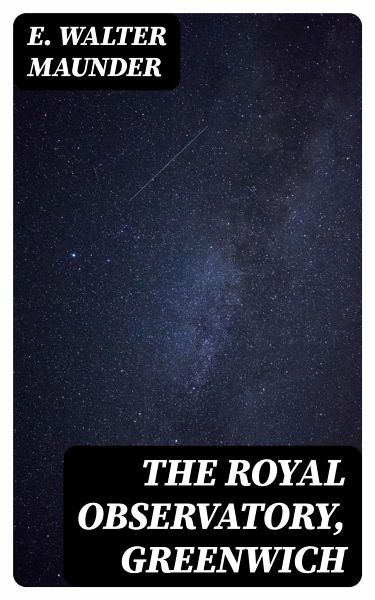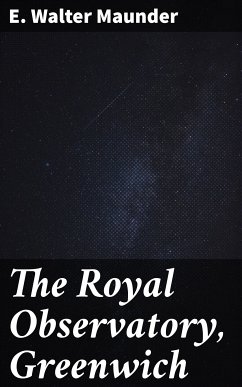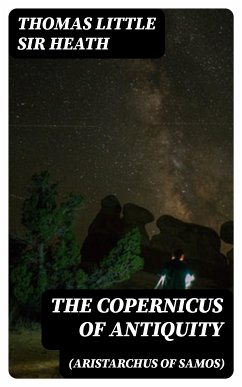
The Royal Observatory, Greenwich (eBook, ePUB)
A Glance at Its History and Work
Versandkostenfrei!
Sofort per Download lieferbar
0,49 €
inkl. MwSt.
Weitere Ausgaben:

PAYBACK Punkte
0 °P sammeln!
In "The Royal Observatory, Greenwich," E. Walter Maunder presents a meticulously detailed exploration of one of the most significant astronomical institutions in history. Through an engaging narrative style that intertwines historical accounts with scientific revelations, Maunder sheds light on the Observatory's evolution from the zenith of navigational astronomy to its role in modern celestial observation. Richly illustrated with sketches and photographs, the book captures the essence of the Observatory, placing it within the broader context of British scientific heritage and its global influ...
In "The Royal Observatory, Greenwich," E. Walter Maunder presents a meticulously detailed exploration of one of the most significant astronomical institutions in history. Through an engaging narrative style that intertwines historical accounts with scientific revelations, Maunder sheds light on the Observatory's evolution from the zenith of navigational astronomy to its role in modern celestial observation. Richly illustrated with sketches and photographs, the book captures the essence of the Observatory, placing it within the broader context of British scientific heritage and its global influence on navigation and timekeeping. E. Walter Maunder, a distinguished astronomer and historian, was deeply influenced by his own experiences at the Royal Observatory, where he contributed to solar research. His background in celestial mechanics, coupled with his passion for historical inquiry, allows him to provide an authoritative account that is both informative and evocative. Maunder's dedication to popularizing the sciences, particularly astronomy, is evident throughout the text, as he seeks to bridge the gap between complex scientific concepts and accessible narration. This book is an essential read for anyone interested in the intersection of science, history, and culture. Scholars, students, and casual readers alike will find Maunder's insights illuminating and his passion for the subject contagious. "The Royal Observatory, Greenwich" is not just a recounting of facts; it's a celebration of human curiosity and the quest for knowledge about our universe.
Dieser Download kann aus rechtlichen Gründen nur mit Rechnungsadresse in A, B, BG, CY, CZ, D, DK, EW, E, FIN, F, GR, H, IRL, I, LT, L, LR, M, NL, PL, P, R, S, SLO, SK ausgeliefert werden.













